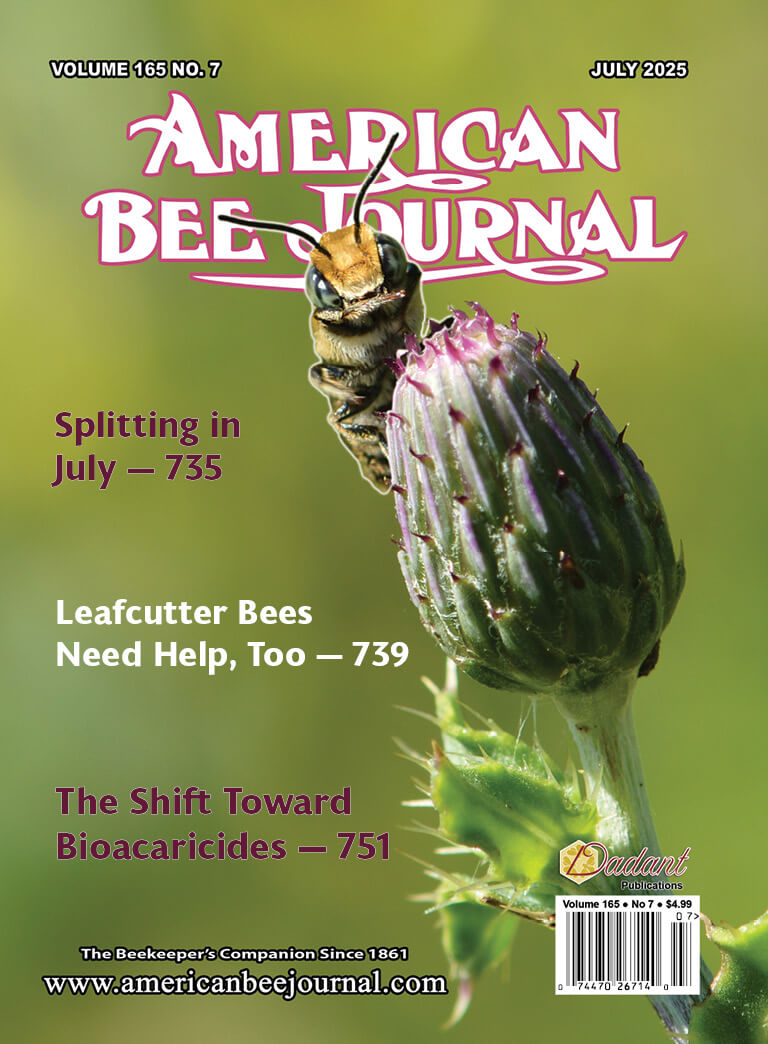Letters to the Editor
Letters to the Editor – July 2025
Dealing With Loss
Hi Tina, I saw myself in your May article (“Dealing with Loss”), lost all five hives last winter.
One I think was queen failure in a hive I caught as a swarm, but the others were varroa that was totally my fault. I had a busy year and my treatments were later than they should have been.Your point of having mite levels under 2% before winter eggs are laid was where I failed, that paragraph hit home.
This spring I put myself in the bee penalty box and vowed not to buy packages and just catch swarms to recover. Two days ago I got a swarm call, when I got there there were two swarms, and when I got home a swarm had moved in to one of my abandoned boxes. From zero to three in a day.
Sometimes we need a near death experience to get in gear, I’ll do better this time.
Thanks for the good article.
Daryl Hill
Ferndale, Washington
Wiring Beeswax Foundation
Wiring frames and embedding foundation is one of my favorite activities, right up there with quilting and splitting firewood. [See “Wiring Beeswax Foundation,” by James E. Tew, June.] While simple repetitive endeavors may seem tedious, they actually empty the mind, giving you space to think. When I get stuck on a problem, there’s nothing like a wiring board, a quilting rack, or an eight-pound maul to set me free.
Plus, one glimpse of those tools keeps everyone else at a distance. People are so afraid I might ask for help that they slink silently away, leaving me in peace. And don’t forget the aroma! Beeswax foundation, a fresh bolt of woven cotton, and a newly split cord of Douglas-fir all smell heavenly. Your article is a great reminder of the good life. Thanks!
Rusty Burlew
Linder’s “Speculative Claims” About Colony Losses
When disasters strike — whether environmental, health-related, or economic — people often search for new explanations rather than relying on existing scientific knowledge. This tendency is particularly evident in discussions about honey bee health and colony collapse disorder (CCD). While research has long identified multiple contributing factors, including pathogens like invertebrate iridescent virus 6 (IIV-6) and nosema species, public discourse frequently shifts toward new theories rather than acting on established science.
Charles Linder’s article in American Bee Journal (“CCD, Politics, and Business as Usual,” May) regarding army research and molecular sieves presents speculative claims that lack empirical support. While military technology has contributed to scientific advancements, the application of molecular sieves in honey bee health remains unproven. Similarly, the Bromenshenk study, which involved collaboration with the U.S. Army’s Edgewood Chemical Biological Center, has faced criticism for its methodology and conclusions (Dainat, Knudsen, Oliver). The study suggested a link between iridescent viruses and CCD, but subsequent research has failed to confirm this as a primary cause. Instead of relying on speculative theories, the beekeeping community should focus on well-documented threats such as varroa mites, nosema infections, and environmental stressors, which have consistently been identified as major contributors to colony losses.
Psychologists studying disaster response note that humans are drawn to novel explanations because they provide a sense of control and urgency. When faced with complex problems, people often prefer simple, fresh narratives over the difficult reality of long-term solutions. This is evident in the history …


